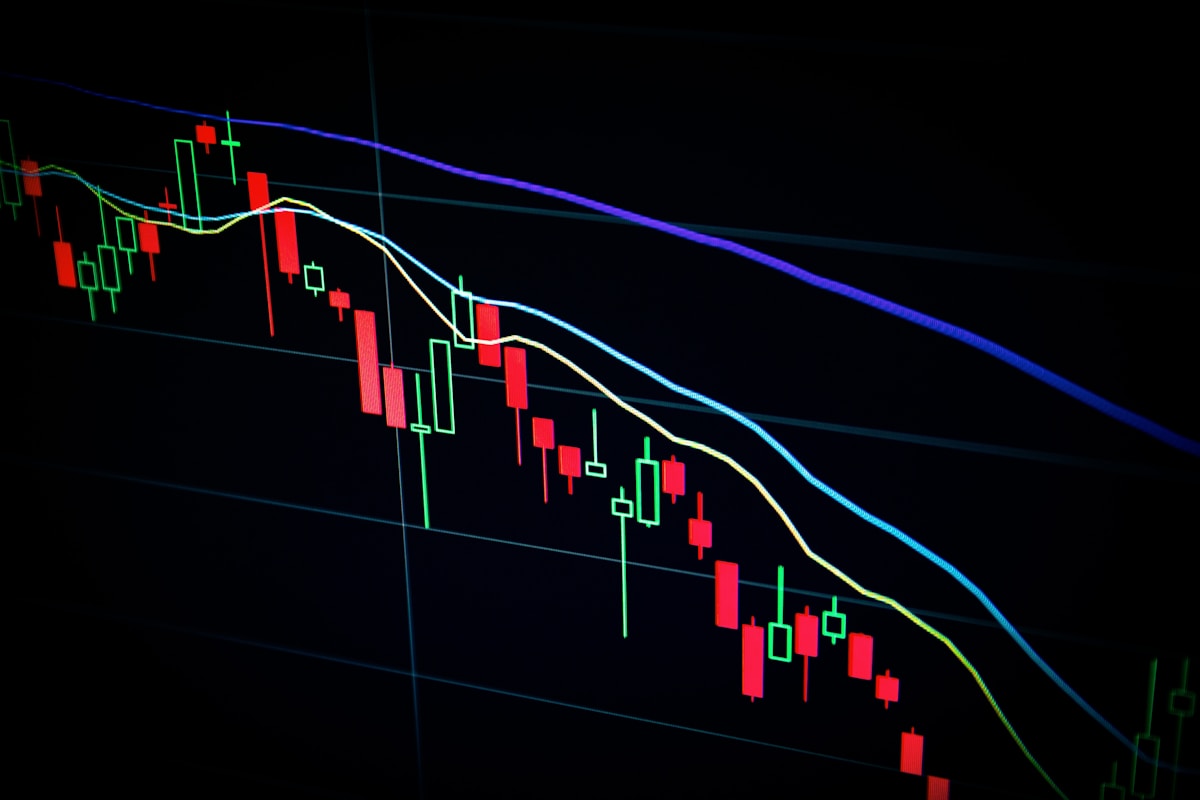You've Got Options—But Which Trading Platform Actually Fits Your Style?
I spent three weeks last month helping my brother-in-law choose a brokerage account. He'd been paralyzed by choice for six months, bouncing between Reddit threads and review sites that all seemed to contradict each other. By the end of our deep-dive, we realized the "best" platform doesn't exist—only the best platform for him.
That's the uncomfortable truth about stock trading platforms in 2026: they've converged on pricing (nearly everything is commission-free now), which means the real differentiators are subtler. Platform design. Research depth. Mobile experience. Margin rates. The stuff that only matters once you're actually trading.
I've analyzed the major players across multiple dimensions—cost structure, tools, user experience, and account types—to help you cut through the noise. Whether you're opening your first brokerage account or considering a switch, this breakdown will point you toward platforms that match how you actually invest.

The 2026 Brokerage Landscape: What's Changed
Commission-free trading is now table stakes. Every major platform—Schwab, Fidelity, Interactive Brokers, E*TRADE, Robinhood, and Webull—offers $0 stock and ETF trades. Options typically run $0.65 per contract across the board, with some volume discounts available.
The real battleground has shifted to three areas: execution quality (how much price improvement you actually get), platform sophistication (tools that help you make better decisions), and ecosystem integration (banking, retirement accounts, and advisory services under one roof).
Charles Schwab currently holds the #1 overall broker ranking, with Interactive Brokers close behind. But rankings don't tell the whole story—a platform that's perfect for a day trader might frustrate a buy-and-hold retirement investor, and vice versa.
Platform-by-Platform Breakdown
Charles Schwab: The All-Rounder
Schwab delivers strong trading platforms, a broad array of tradable securities and services, and responsive customer support available at any time, day or night. After absorbing TD Ameritrade, they now offer the thinkorswim platform—widely considered one of the best desktop trading experiences available.
Best for: Investors who want everything in one place. Schwab excels at serving both novice investors and seasoned traders without forcing either group to compromise.
Standout features:
- The thinkorswim mobile and desktop apps offer powerful charting, over 350 technical studies, advanced order types, and ladder trading.
- Schwab offers one of the biggest rosters of mutual funds with no load and no transaction fee.
- Stock Slices let you buy fractional shares of S&P 500 companies for as little as $5
- 24/7 customer support with excellent response times
The catch: Schwab charges a $50 transfer-out fee if you're moving your whole account—below the industry average but above brokers like Fidelity and Interactive Brokers that charge nothing. Also, Schwab doesn't currently offer direct cryptocurrency trading, though they expect to offer direct access to crypto in 2026.
Fidelity: The Quiet Powerhouse
Whether you're looking for a great trading platform, low commissions, or helpful customer support, Fidelity will do right by you. What sets Fidelity apart is something less visible: of the 16 brokers tested for 2025, Fidelity offers the best order execution quality and is the only broker to not accept payment for order flow (PFOF) with commission-free trades.
Best for: Long-term investors, retirement savers, and anyone who cares about getting the best possible price on their trades.
Standout features:
- Research tools are exceptional—Fidelity's economic calendar is a go-to for tracking key market events, offering context that explains the reasoning behind market movements.
- Fidelity Go, their digital advisory service, charges no annual advisory fee for balances under $25,000 and holds only no-fee mutual funds.
- For as little as $1, you can buy fractional shares of more than 7,000 stocks and ETFs—only Interactive Brokers can match that breadth.
- Fidelity ranked #1 in exhaustive customer service testing for 2025.
The catch: Margin rates are significantly higher than Interactive Brokers—Fidelity lists 12.575% below $25,000 compared to IBKR's 6.83%. If you trade on margin frequently, this cost difference adds up quickly.
Interactive Brokers: The Professional's Choice
Interactive Brokers is the best trading platform in 2026, with extremely low fees, a wide range of products, and many great research tools. This platform was built for professionals and institutions, but they've expanded accessibility without dumbing down the tools.
Best for: Active traders, margin users, and anyone who wants access to global markets. Also excellent for sophisticated options traders.
Standout features:
- The Trader Workstation (TWS) platform offers the largest selection of order types alongside the lowest margin rates in the industry.
- Access to 90 stock markets worldwide and up to 90,000 tradable stocks—the broadest market access available.
- Interactive Brokers serves both the most sophisticated traders and beginners with tools like the multisort screener that allow filtering and ranking investments with intuitive data visualizations.
- $0 fee for full account transfers (ACAT)—they want your business and remove friction to get it
The catch: TWS is not especially beginner-friendly. The learning curve is steep, and the interface can feel overwhelming. IBKR Lite (their simplified tier) helps, but if you want the full power of this platform, expect to invest time learning it.

E*TRADE from Morgan Stanley: Research Depth Meets Usability
E*TRADE earned 5 out of 5 stars overall and was ranked the #1 Web Trading Platform for the 13th year in a row in StockBrokers.com's 2025 Annual Awards. The Morgan Stanley merger has added institutional-grade research while maintaining E*TRADE's historically strong retail experience.
Best for: Investors who want deep research resources, options traders, and those who appreciate a polished web and mobile experience.
Standout features:
- Power E*TRADE Pro allows traders to create up to six custom workspaces, each with up to 20 tools, allowing for a total of 120 charts across multiple monitors.
- Research offerings include Moody's, Morgan Stanley, MarketEdge, Morningstar and more.
- Volume discounts for active options traders—those with 30 or more trades per quarter pay 50 cents per contract instead of 65 cents.
- Execution quality of 98.20% for S&P 500 stocks—above the industry average of 97.51%
The catch: Those who want immediate crypto access will need to wait—Morgan Stanley plans to offer crypto trading to E*TRADE customers in the first half of 2026. Also, beginners seeking fractional shares will need to try another investment brokerage firm.
Robinhood: Simplicity as a Feature
Robinhood pioneered commission-free trading and mobile-first investing. Its clean interface is easy to use and perfect if you want a beginner investment app. The platform has matured significantly, adding retirement accounts with matching and more sophisticated tools, but simplicity remains its core identity.
Best for: First-time investors, mobile-first traders, and anyone who values a frictionless onboarding experience.
Standout features:
- Robinhood earns a 3% IRA contribution match with Robinhood Gold's $5 per month subscription.
- Robinhood offers several great beginner courses to help you learn to invest.
- Fractional shares starting at $1
- Crypto trading integrated directly into the main app (22 coins available)
The catch: Robinhood doesn't offer paper trading for risk-free practice, webinars, quizzes, or tools to track learning progress. Research features are weaker than Webull's, and order flow and pricing disclosures are less detailed. If you want to grow into more sophisticated analysis, you may outgrow the platform.
Webull: The Advanced Mobile Trader
Webull is an excellent choice for beginning and intermediate traders with outstanding user experience and better charts than Robinhood. It occupies interesting middle ground—more sophisticated than Robinhood, more approachable than Interactive Brokers.
Best for: Mobile traders who want real analytical tools, intermediate investors ready to level up, and anyone interested in extended trading hours.
Standout features:
- Paper trading for risk-free practice, plus webinars, quizzes, and tools to track your learning progress.
- 50 cryptocurrencies available compared to Robinhood's 22.
- Extended trading hours from 4:00 a.m. to 8:00 p.m.
- Copy-trading functionality, allowing users to follow and automatically replicate the trades of successful investors.
The catch: Options contracts are commission-free, but crypto markups and markdowns are on the high side. Webull charges a $75 transfer-out fee—not unusual, but worth noting if you might switch platforms later.
Head-to-Head Comparison: The Numbers That Matter
| Platform | Stock/ETF Commission | Options (per contract) | Account Minimum | Margin Rate (under $25K) |
|---|---|---|---|---|
| Charles Schwab | $0 | $0.65 | $0 | ~13% |
| Fidelity | $0 | $0.65 | $0 | 12.575% |
| Interactive Brokers | $0 | $0.15–$0.65 | $0 | 6.83% |
| E*TRADE | $0 | $0.50–$0.65 | $0 | ~13% |
| Robinhood | $0 | $0 | $0 | 11% (7% with Gold) |
| Webull | $0 | $0 | $0 | ~9.5% |
Choosing Based on Your Investor Profile
If You're Just Getting Started
Top picks: Fidelity or Robinhood
Fidelity gives you room to grow with professional-grade tools you'll appreciate later, while charging nothing extra now. Their educational resources are comprehensive without being condescending. Robinhood works if you want the absolute lowest friction entry point—you can be placing trades within minutes of downloading the app.
If You're Building Long-Term Wealth
Top picks: Fidelity or Charles Schwab
Both offer excellent retirement account options (Traditional IRA, Roth IRA, SEP IRA, and more) with no annual fees. Their mutual fund selections are vast, and their research tools help you understand what you're investing in. Fidelity's edge: better execution quality means more money stays in your account over time.
If You're an Active Trader
Top pick: Interactive Brokers
The margin rate difference alone justifies the steeper learning curve. If you're trading frequently and using leverage, IBKR's 6.83% rate versus Fidelity's 12.575% saves real money. Add in the professional-grade platform, and there's no contest for serious active traders.
If Options Are Your Focus
Top picks: E*TRADE or Interactive Brokers
E*TRADE's options analysis tools are exceptional, and they've earned "Best in Class" distinction for Options Trading consistently. Interactive Brokers offers tiered pricing that rewards volume and has the most sophisticated options order types available.
If Mobile Trading Is Everything
Top picks: Webull or Schwab (thinkorswim mobile)
Webull delivers the best balance of mobile usability and analytical depth. But if you also want desktop power, Schwab's thinkorswim mobile app provides professional-grade tools in a mobile format—you're not sacrificing capability when you trade on your phone.

Features Worth Paying Attention To (That Reviews Often Skip)
Payment for Order Flow (PFOF)
Most commission-free brokers make money by selling your order flow to market makers. This isn't inherently bad, but it can affect execution quality. Fidelity is the only broker to not accept payment for order flow with commission-free trades, resulting in better price improvement for customers. If you trade large volumes, this difference compounds.
Interest on Uninvested Cash
Cash sitting in your brokerage account should earn something. Rates vary dramatically—some brokers pay next to nothing while others offer competitive yields. E*TRADE from Morgan Stanley currently offers 3.75% on their HYSA as of late 2025, which is competitive with dedicated high-yield savings accounts.
Account Transfer Fees
You probably aren't thinking about leaving when you open an account, but circumstances change. Interactive Brokers charges $0 for full ACAT transfers, while Charles Schwab charges $50 and Robinhood charges $100. This matters if you're consolidating accounts or if a better option emerges.
Fractional Shares
Not all fractional share programs are equal. Fidelity and Interactive Brokers let you buy slices of over 7,000 stocks and ETFs for as little as $1. Schwab customers can only buy fractional shares of S&P 500 stocks—still useful, but more limited.
The Bottom Line: Match the Platform to Your Behavior
Here's what I told my brother-in-law: stop looking for the objectively "best" platform and start looking for the one that fits how you'll actually use it. He wanted to invest consistently in index funds, occasionally buy individual stocks when something caught his attention, and not think about his portfolio constantly. Fidelity was the obvious choice—excellent execution, great research when he wants it, low friction when he doesn't.
If you're paralyzed by options, start with this: Fidelity or Schwab are almost never wrong choices. They do everything well, charge nothing for the basics, and won't limit you as your investing needs evolve. From there, you can always specialize—open an Interactive Brokers account for active trading, or keep a Robinhood account for quick mobile trades.
The platforms are good enough now that your asset allocation and investment discipline matter far more than which broker you choose. Pick one that doesn't get in your way, and focus your energy on the decisions that actually move the needle.
Remember: all investments carry risk, and past platform performance doesn't guarantee future results. Consider consulting with a financial advisor for personalized guidance, and always read the fine print on fee schedules before opening an account.